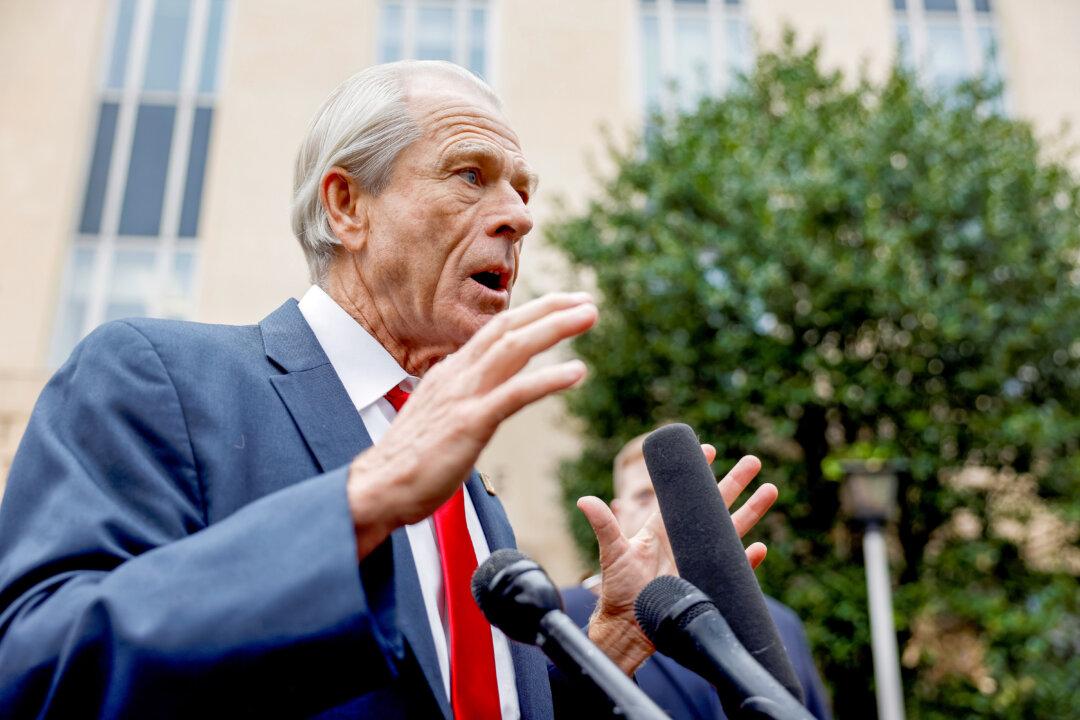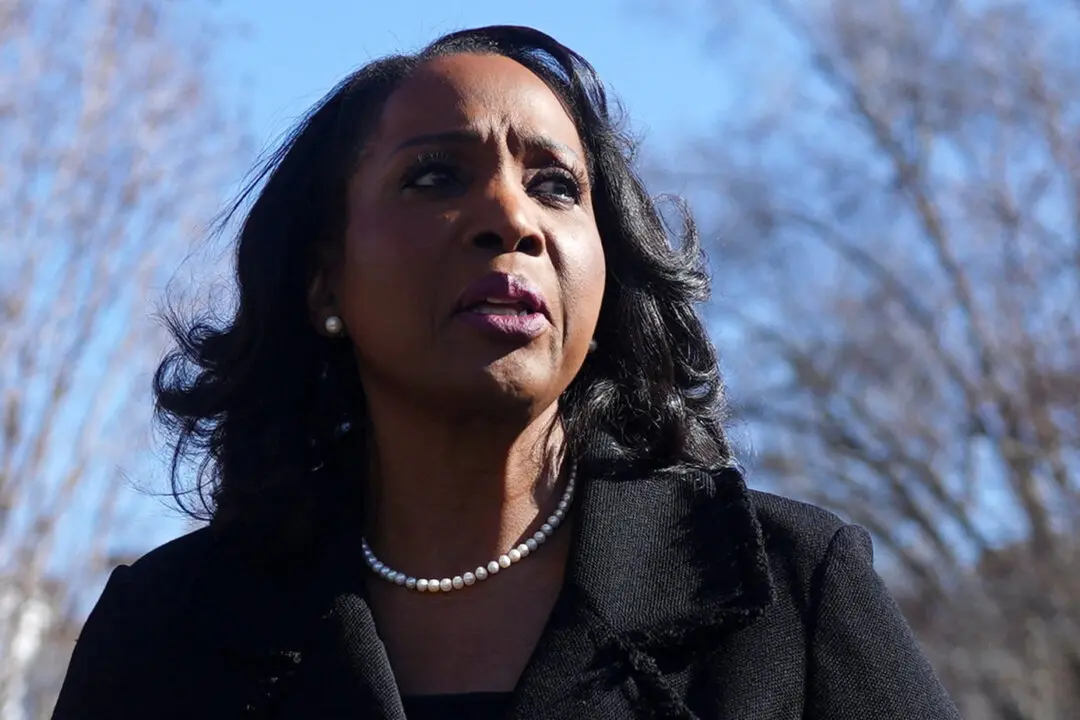Former Trump White House aide Peter Navarro on March 15 asked the Supreme Court to allow him to avoid reporting to prison for a contempt of Congress conviction as the matter is being appealed.
His request came after the U.S. Court of Appeals for the DC Circuit denied his request for release from prison pending appeal. Mr. Navarro revealed on March 10 that he was ordered to report to a Miami prison on March 19 for a four-month sentence.





